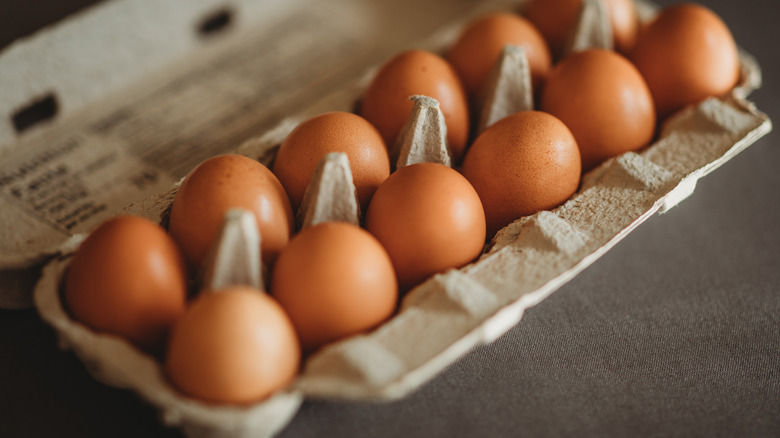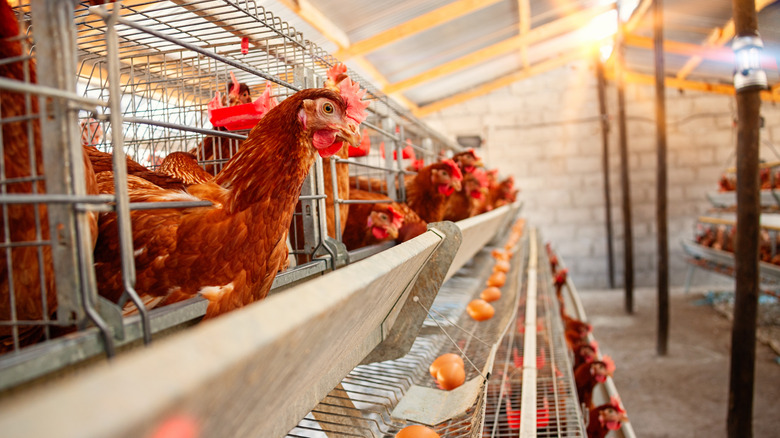Why You'll No Longer Find Free-Range Eggs In The UK
If you're an especially discerning egg consumer, you might make the extra effort to seek out free-range, cage-free, pasture-raised, or certified humane eggs when you visit the grocery store. These different labels could indicate that the chickens that laid those eggs enjoyed a higher quality life or better diet than the chickens that provide standard supermarket eggs. Although these eggs are usually more expensive, there's also evidence that they're more nutritious, boasting higher levels of omega-3 fatty acids and vitamins A and E, according to research from Penn State University.
If that's a price you're willing to pay for better eggs — and you live in the United Kingdom — you might be disappointed to learn that starting today, free-range eggs are no longer available on supermarket shelves. Why not? According to the Guardian, it's due to concern over outbreaks of avian flu among British birds.
Avian flu fears have kept chickens indoors since November
Over the winter, the Guardian reports, more than 80 incidences of avian flu were documented across the U.K., a phenomenon that has been echoed on U.S. shores with recent outbreaks at chicken producers located in Kentucky and Virginia. As a response, the U.K. government ordered that all chickens raised for both meat and eggs be kept indoors starting last November, in an attempt to reduce transmission of the virus, which can cause illness and death in domestic poultry but poses no risk for humans as long as affected meat and eggs are cooked to an internal temperature 165 degrees Fahrenheit (via CDC). Because formerly free-range chickens are now being kept indoors in barns, labeling on the eggs has been swapped from "free-range" to "barn eggs" in the U.K, — a change poultry farmers are hoping will be dropped soon with the arrival of warmer temperatures and less incidence of avian flu.
"Shoppers may notice different labels on egg packs explaining that the eggs have been laid by hens temporarily housed to protect their health and welfare," Aimee Mahony, chief poultry adviser at the U.K.'s National Farmers' Union, told the outlet. "Once the risk levels have reduced and the housing measures have been lifted ... birds will be able to go outside again."

